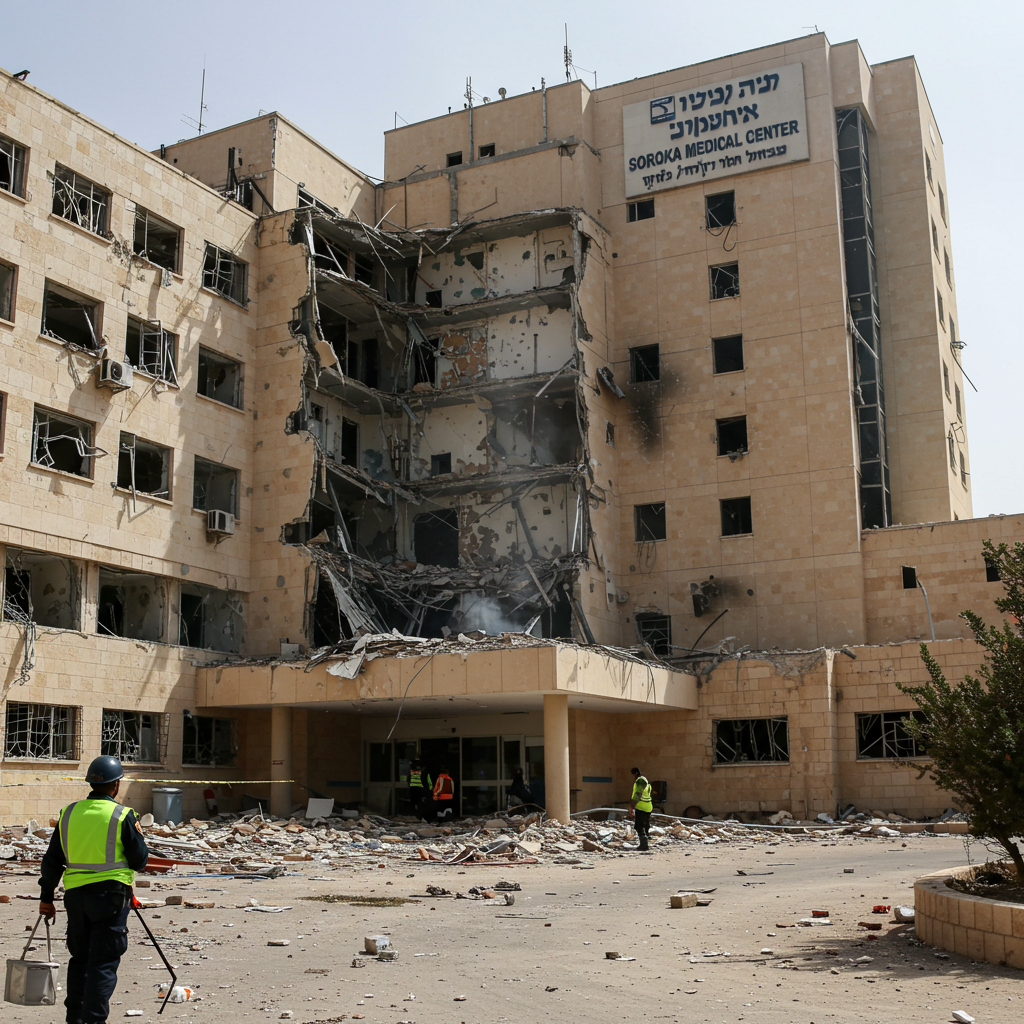Report: Trump Blocked Israeli Plan to Assassinate Iran’s Supreme Leader
Former President Donald Trump reportedly rejected a plan presented by Israel to assassinate Iran’s Supreme Leader, Ayatollah Ali Khamenei. According to a U.S. official familiar with the sensitive matter, Israel had informed the Trump administration that they possessed a credible operational plan to eliminate Khamenei.
The revelation comes amidst escalating tensions and ongoing hostilities between Israel and Iran, marked by days of intense missile and drone exchanges. The U.S. official, who spoke on condition of anonymity, indicated that after being briefed on the proposal, the White House made it unequivocally clear to Israeli officials that President Trump opposed the move.
Why Trump Opposed the Assassination Plan
The primary motivation behind Trump’s rejection was reportedly a strong desire within the administration to prevent Israel’s military actions from spiraling into a wider, more expansive regional conflict. While Israel’s operations were initially described as targeting Iran’s nuclear program, the U.S. viewed the plan to kill Khamenei as a potentially destabilizing step that would severely inflame the already volatile situation in the Middle East.
The U.S. assessment was that assassinating the Supreme Leader would counteract their efforts to contain the conflict and could lead to unpredictable and dangerous consequences beyond strikes aimed at nuclear capabilities.
Israeli Responses and Conflicting Accounts
When questioned about the reported U.S. rejection of the assassination plan during a television interview, Israeli Prime Minister Benjamin Netanyahu offered a somewhat non-committal response. He stated, “I think that we do what we need to do, we’ll do what we need to do,” adding that “the United States knows what is good for the United States.” Netanyahu also suggested that “regime change could certainly be the result” of the conflict, believing the Iranian regime to be “very weak.”
However, adding complexity to the narrative, Netanyahu’s spokesperson, Omer Dostri, later publicly dismissed reports about the Israeli plan to kill Khamenei as “fake.” The initial report of Trump’s rejection was first published by Reuters.
Conflict Deepens as Strikes Continue
The backdrop for this reported U.S. intervention is a period of intensifying conflict between Israel and Iran. The two nations have been trading missile and drone attacks for multiple consecutive days. Israel has appeared to broaden its air campaign against Tehran, with strikes reportedly targeting Iranian military leaders, nuclear scientists, uranium enrichment sites, and ballistic missile programs. Israel has justified its “sweeping assault” as necessary to prevent Iran from developing atomic weapons.
These strikes have resulted in significant casualties on both sides. Reports indicate hundreds killed and over a thousand wounded in Iran since the attacks began, while Israel has also suffered dozens of fatalities and hundreds wounded from Iranian counter-attacks, which have included a large number of missiles and drones.
During this period, the Israeli military reportedly called for the evacuation of hundreds of thousands of residents in specific Tehran neighborhoods. Observations from Tehran indicated signs of people leaving the city, with shops and the historic Grand Bazaar closing, despite Iranian authorities insisting the situation was under control and issuing no official evacuation guidance. Israel also claimed significant military successes, including killing a top Iranian general and destroying various military installations.
Trump’s Public Stance: Warnings and Predictions
Amidst the escalating conflict, President Trump issued strong public statements, often via social media. He issued a stark warning to Iran, stating that the United States “had nothing to do with the attack on Iran” (referring to the Israeli strikes) but threatened severe retaliation if Iran were to attack U.S. targets in the Middle East. Iran, however, has held the U.S. responsible due to its extensive military support for Israel.
Trump warned, “If we are attacked in any way, shape or form by Iran, the full strength and might of the U.S. Armed Forces will come down on you at levels never seen before.”
Hours later, Trump’s tone shifted, predicting on social media that “Iran and Israel should make a deal, and will make a deal” potentially “soon.” However, speaking to reporters before departing for a G7 summit, he appeared more measured, acknowledging that sometimes parties “have to fight it out” but expressing hope for a deal. During this time, Trump also drew headlines for a striking social media post urging “all of Tehran” to evacuate immediately. He later denied that his early return from the G7 was solely to work on a ceasefire, aiming instead for “better than a ceasefire.” While G7 leaders issued a statement supporting that Iran “can never have a nuclear weapon” and calling for de-escalation, Trump publicly contradicted suggestions that G7 discussions focused heavily on an immediate ceasefire between Israel and Iran.
Claims of De-escalation and Internal US Debate
Trump also highlighted his administration’s track record in mediating past disputes, citing efforts related to India and Pakistan, Serbia and Kosovo, and Egypt and Ethiopia. He expressed confidence in achieving peace between Israel and Iran, forecasting a quick resolution and lamenting what he perceived as a lack of credit for his efforts, stating, “the PEOPLE understand.”
The intensifying conflict and the question of U.S. involvement have reportedly exposed a divide within the U.S., particularly among prominent Republican figures and elements of Trump’s political base. Some, like Rep. Marjorie Taylor Greene, Charlie Kirk, and Tucker Carlson, along with Sen. Rand Paul, have voiced skepticism regarding deep American involvement in foreign conflicts and praised Trump’s reported restraint. Sen. Paul argued it was not the U.S.’s job to be involved in “this war.”
In contrast, other Republican voices, such as Sen. Lindsey Graham, have advocated for stronger action. Graham suggested that if diplomacy fails, the U.S. should “go all in” on destroying Iran’s nuclear program, including potentially providing necessary military assets like bombs or participating directly alongside Israeli forces.
The reported U.S. decision to veto the assassination plan underscores the complex strategic calculations and conflicting priorities facing Washington as it navigates the volatile relationship between two of its key adversaries in the region, while also managing internal political divisions.



